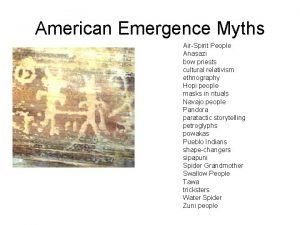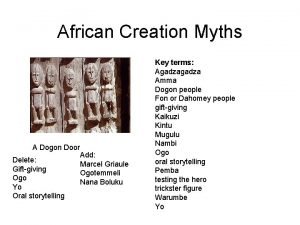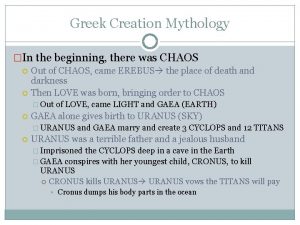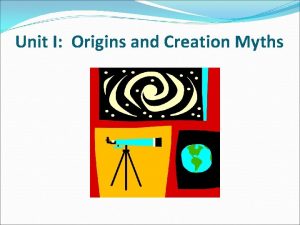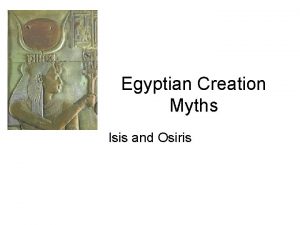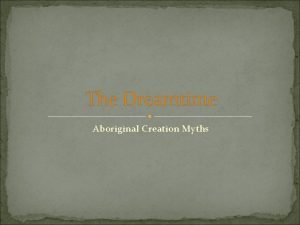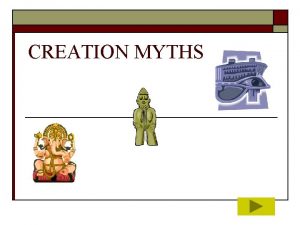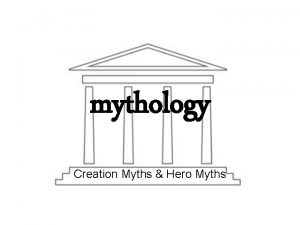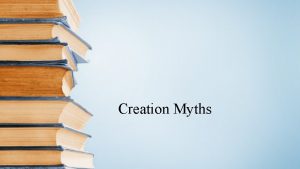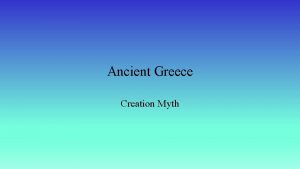Unit I Origins and Creation Myths Creation Myth





- Slides: 5

Unit I: Origins and Creation Myths

Creation Myth defined Stan Mulder writes: . . . Every culture has a story that tries to explain its human origins. This is simply a normal human phenomenon. The lucky cultures are the ones whose creation myths contain some humor and kindness. . A people's belief about the world's beginnings is usually called a creation myth, mythology, story, or tale by other peoples. It should be noted, however, that to the people involved, these are not myths or stories. They are real, not in a linear, literal, scientific sense, but nevertheless real, and part of the authentic plurality of humankind's truths.

TRUE OR FALSE? IS THAT THE QUESTION? Do you believe in a creation story? Would you call it a myth? If the purpose is not to convey a timeline of occurrences, why might cultures develop and maintain creation stories or other important oral traditions?

WEB SEARCHES In lieu of providing examples for students, students may search on their own. In groups of three or four (approximately five groups) , choose to search one of the following: African Creation Stories Australian Aboriginal Stories Japanese Creation Stories of India Greek Origin Stories Babylonian Creation Stories Chinese Creation Stories Share the important aspects or your story with your classmates and then discuss similarities across cultures.

REFLECTION What other ideas do you have about the purpose of origin stories now that you have heard some new ones? What are issues, occurrences, or “facts of life” that you think there should be origin stories for? How does the format of a story differ from the format of a scientific brief? Why do you think cultures choose the story format?
